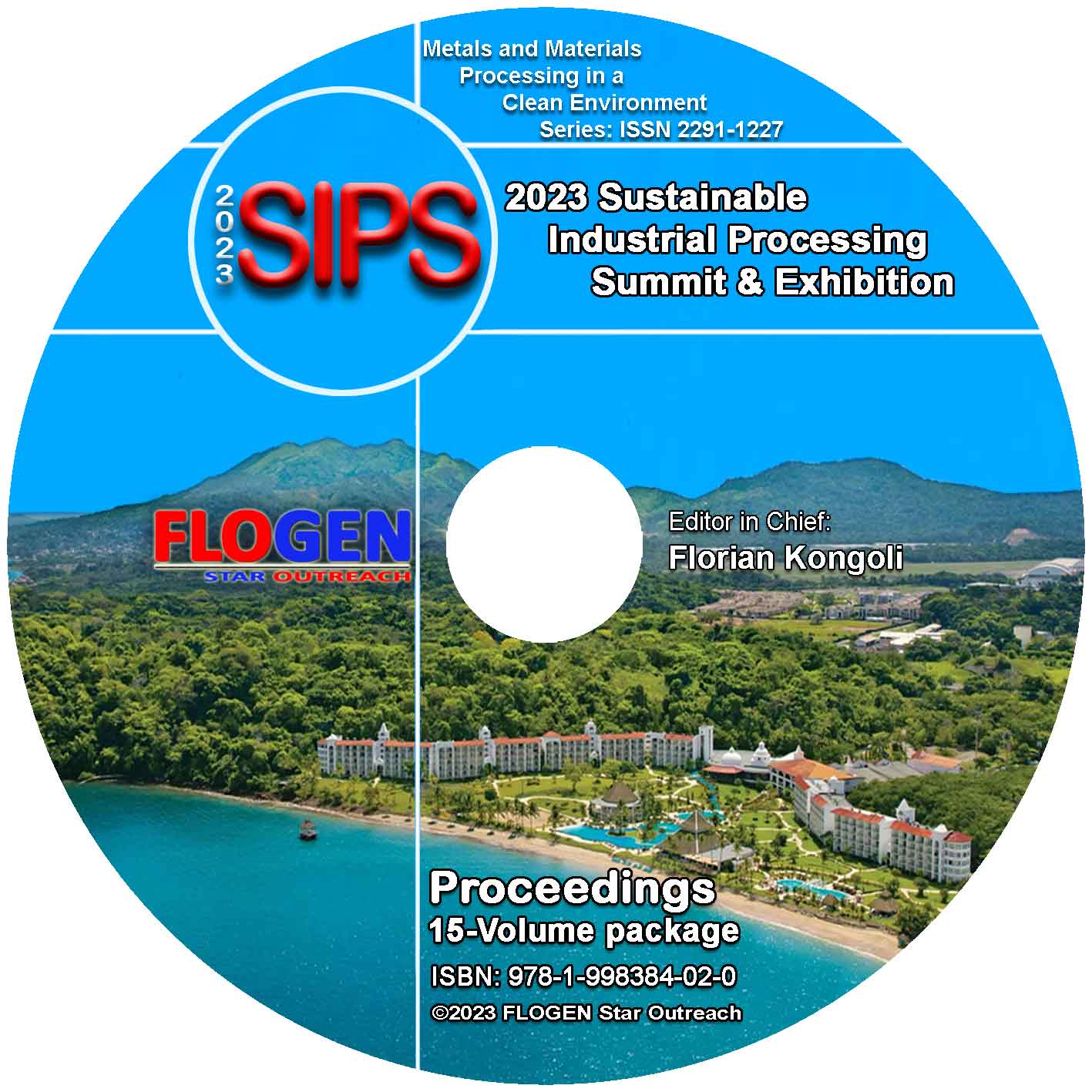2023-Sustainable Industrial Processing Summit
SIPS2023 Volume 12. Intl. Symp on Energy, Carbon, Biochar and Cement
| Editors: | F. Kongoli, S.M. Atnaw, H. Dodds, M. Mauntz, T. Turna, A. Faaij, J. Antrekowitsch, G. Hanke, H.W. Kua, M. Giorcelli |
| Publisher: | Flogen Star OUTREACH |
| Publication Year: | 2023 |
| Pages: | 204 pages |
| ISBN: | 978-1-989820-94-0 (CD) |
| ISSN: | 2291-1227 (Metals and Materials Processing in a Clean Environment Series) |

CD shopping page
SMART WATER INJECTION INTO CARBONATE RESERVOIR ROCKS AND ITS EFFECT ON RESERVOIR ROCK AND FLUID PROPERTIES
Abdollah Esmaeili1;1UNIVERSIDADE FEDERAL DO PARá (UFPA), Belem, Brazil;
Type of Paper: Regular
Id Paper: 371
Topic: 17
Abstract:
With the increasing demand for crude oil, oil producing countries are trying to increase production. Enhanced oil recovery (EOR) methods play an important role in increasing oil production. Among the methods, advanced or smart water injection performs better due to its low cost and high efficiency. One of the methods of increasing oil recovery that has received a lot of attention is smart water injection, which tries to improve its effectiveness by changing the salinity and ions of the injected water. The most important issue in producing crude oil from carbonate oil reservoirs is the phenomenon of oil remaining in the pores of reservoir rock. One of the methods used to increase production efficiency in carbonated reservoirs is smart water injection in order to change the wettability of carbonate reservoir rock which is one of the important parameters in increasing oil recovery; especially in these reservoirs, which have often oil- wet reservoir rock. If we be able to change wettability of reservoir rock from oil-wet to water-wet, production efficiency and oil recovery from the reservoir will be increased. The smart water solution is nothing more than adding a small amount of salt to the water. There are many salts in nature, all of which are formed by acid-base reactions. The salt produced from the acid-base reaction is a neutral compound and releases its ions when dissolved in water. Active ions have a great effect on reducing the interfacial tension between water and oil, as well as the wettability of the reservoir rock. This principle is the main reason for using smart water as an effective material for enhanced oil recovery (EOR).